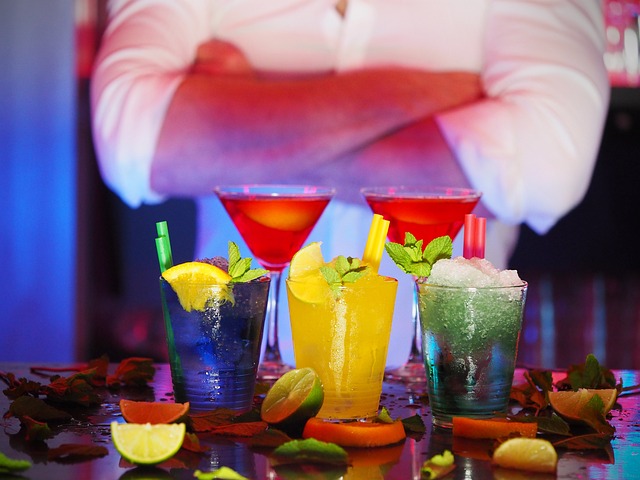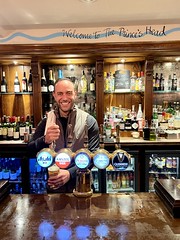
Alcohol training courses are an important (part) of understanding the implications of drinking. They help to provide education on the dangers and risks associated with alcohol consumption, as well as how to drink responsibly. There's no denying that these courses can be extremely useful for those looking to reduce their drinking or abstain altogether!
However, they're not always easy to take part in. For starters, you may have difficulty finding a course near you, or maybe even one that fits into your schedule! Familiarize yourself with point of sale systems and cash handling procedures Testing/Examinations bartender. Apply to bartender job postings and be ready to demonstrate your skills in auditions how to become a bartender beer. Brush up on customer service skills to handle patrons and process tabs efficiently Testing/Examinations hospitality. Apply to bartender job postings and be ready to showcase your skills in auditions how to become a bartender flair bartending. Plus, if you decide to take an online course instead, it may be difficult to find one that covers all the necessary information without becoming too complicated or overwhelming.
(Nevertheless,) many people find taking part in alcohol training courses incredibly valuable and rewarding. Not only do they allow individuals to gain knowledge about the effects of drinking but also equip them with skills and strategies for making healthier decisions when consuming alcohol. Moreover, these classes often provide helpful advice on how to intervene when someone else is being irresponsible with their drinking habits.
In short, there are plenty of advantages that come with taking part in an alcohol training course! From gaining more insight into self-control and responsible drinking behaviors to understanding the consequences of excessive consumption – there's much to learn from such classes. So if you ever feel like you could benefit from some extra knowledge on this topic – why not give it a go? You won't regret it!
Alcohol training courses are an essential part of any workplace or organization. From warehouse staff to bar tenders, it is important that everyone is familiar with the safe and responsible service of alcohol. Different types of training courses exist, each tailored to different levels of experience and knowledge.
Firstly, there's induction training (also known as basic awareness). This course is designed for those who have limited knowledge about alcohol service and provides an introduction into the law, licensing regulations and health & safety aspects surrounding alcohol sales. It also covers topics such as intoxication recognition and dealing with difficult customers.
Next up is personal license holder training (sometimes called intermediate level). This is aimed at those who wish to apply for a personal license which allows them to sell or supply alcohol in their business premises. The course covers topics such as legislation, policies & procedures, record-keeping and how to use age verification methods like Challenge 25.
Furthermore there's advanced level training (sometimes referred to as supervisor level) which focuses on providing more detailed information related to the sale and consumption of alcohol within a licensed premise. It typically includes more complex topics such as identifying vulnerable people, managing conflict situations and understanding how intoxication can be prevented through good customer service practices.
Moreover, bespoke courses are available for those looking for specific areas of expertise e.g security staff in nightclubs may need additional levels of guidance around searching patrons or monitoring queues outside venues etc.. Additionally these can be tailored further depending on local bylaws in place so it's important you speak with your trainer prior to attending the course if this applies!
All in all these various types of alcohol training courses ensure personnel are well equipped with the necessary skills required when serving drinks responsibly - helping reduce issues associated with over-consumption whilst still allowing customers to enjoy themselves without worry!


Obtaining a bartender license in New York City can seem daunting, but with the right resources it doesn't have to be!. To get started, you'll need to fill out an application and provide proof of age (18 years or older) and residency.
Posted by on 2023-09-03

Obtaining a bartender license in New York City can be a complicated process.. You must keep track of all the necessary paperwork, understand and abide by the specific regulations, and even take classes to earn your certification.
Posted by on 2023-09-03

Alcohol training courses are an essential element in the modern workplace. The (benefits of such trainings) are manifold, and can be felt at both individual and organizational levels. Firstly, they provide staff with a better understanding of laws governing alcohol consumption, helping to ensure that regulations are followed! Secondly, these courses help to create a safe environment for customers by providing employees with the knowledge necessary to help prevent dangerous behavior related to alcohol use. Thirdly, it instills a sense of responsibility in workers, as they become more aware of their actions and the consequences those actions have on others. Lastly, such training courses can improve company’s image and reputation among its clients and partners.
Moreover, there is an undeniable financial benefit associated with offering such trainings: businesses may save money from potential legal issues due to employee’s negligence or ignorance towards relevant laws. Furthermore, implementing alcohol-related policies helps companies avoid fines which could arise if any incident occurs due to improper handling of alcoholic beverages in the workplace.
In conclusion, alcohol training courses offer many advantages; they not only protect people from harm but also potentially bring economic gain for organizations. They are therefore worth investing in: taking part in them is beneficial not only for safety purposes but also for business growth prospects.(!)
Alcohol training courses are essential for anyone (who works in the hospitality industry) or deals with alcohol in any way. It's important not to underestimate the importance of such courses, as they can help protect both employees and customers from potential risks! Not only that, but it can also reduce liability for employers when it comes to serving alcohol in a responsible manner.
However, who should take an alcohol training course? Firstly, anyone working at a bar or restaurant needs to attend one. This includes bartenders, waitstaff and managers. Secondly, staff members at events where alcohol is served should also take part in this type of training - especially those responsible for checking ID's and monitoring the consumption of alcohol. In addition, security guards or hosts may need to gain knowledge on how to spot signs of intoxication or underage drinking.
Moreover, organizers of private events such as weddings or parties where alcohol is served must ensure their staff have taken an appropriate course before managing the event. Finally, anyone involved with retail sales (or distribution) of alcoholic beverages should also be aware of what these courses entail and why it's necessary to complete them! All in all, anybody dealing with alcohol should consider taking an alcohol training course - no matter their role or responsibilities!

Are you looking to become certified in alcohol training courses? It can be a challenging process to find an accredited program! But with some research and dedication, you'll be on your way to becoming a certified alcohol trainer in no time!
First off, the internet is a great resource for finding information about any type of course. You should start by searching online for programs that are available in your area. Once you've done that, take a look at the accreditation of each program. Look for reviews from previous students and find out if they've had positive experiences with it. (Also consider asking around to see if anyone else has taken one of these courses.)
Additionally, many universities or community colleges offer alcohol training courses as part of their curriculum. Be sure to contact them directly to inquire about their program and ensure its accreditation status. Some larger schools may even have dedicated departments for this purpose!
Finally, don't forget about professional organizations that offer certifications related to alcohol training courses. These groups often provide detailed information regarding course requirements and fees so make sure you read up on those details before signing up. Plus, they can provide invaluable contacts within the industry who may be able to help you with your search for an accredited program!
In conclusion, there are several ways you can go about finding an accredited alcohol training course. Take your time researching potential programs online or through other sources then make sure they're properly accredited before committing yourself financially or otherwise. With some effort and persistence, you'll soon be ready to hit the ground running as an official Alcohol Trainer!

Alcohol training courses can be a great way to gain knowledge and understanding of the effects of alcohol. They provide essential information for those who work in positions that involve the sale or serving of alcoholic beverages (like bartenders, waiters, etc.). The courses cover topics such as responsible beverage service, state and federal laws on alcohol, recognizing signs of intoxication and more. But what exactly can you expect from an alcohol training course?
Firstly, there will be lots of learning involved! You'll get an overview of the relevant legal issues and regulations surrounding the sale and service of alcohol. You'll learn about intoxication levels, how to identify when someone has had too much to drink and how to handle difficult situations. Additionally, you'll become more aware of strategies for reducing harm associated with drinking like providing food or non-alcoholic alternatives.
Also, practical exercises are part of most courses – these often include roleplays or simulations that help learners understand concepts better. And because it's important to remember all this info after taking a course, you should expect assessments at the end where you apply your new knowledge in real life scenarios.
Overall, taking an alcohol training course can help build skills and confidence in handling different situations – plus earn you certification upon completion! It's a great opportunity for anyone working in hospitality or other related fields. So don't wait any longer: enroll today!

Alcohol training courses can be a great way to learn about responsible drinking and bartending. Though they may seem daunting, there are some tips (that) can help ensure success! First of all, stay focused and don't procrastinate - the sooner you start studying, the more prepared you'll be for tests and assignments. Neglecting to do this could lead to an undesirable outcome! Secondly, ask questions if something is unclear - instructors want you to understand the material and will be happy to answer any inquiries. Also, take advantage of study groups; having classmates to discuss topics with can make learning easier and more enjoyable.
Furthermore, pay attention in class as lectures often contain important information that isn't included in textbooks. And try not to get distracted by your phone or other devices - it's better to focus on the lecture at hand than worry about what you're missing out on online. Additionally, practice makes perfect; taking mock exams or quizzes before tests will help ensure a better result! Finally, have fun throughout the course - though it can be challenging at times, alcohol training courses should still provide an enjoyable experience overall.
In conclusion, following these tips can greatly increase your chances of success in an alcohol training course! With some dedication and effort, anyone should be able to ace their classes and become a certified bartender or server. So go forth confidently and take charge of your future today!!
Alcohol Training Courses are essential for those who work in the hospitality industry. They provide information and guidance on how to serve alcohol responsibly and safely (and) how to identify intoxicated customers. In conclusion, these courses offer an invaluable service to both staff and patrons alike. As they help ensure that all alcohol related issues are dealt with appropriately. Furthermore, they provide employees with the knowledge needed to recognize when a customer has had too much alcohol, and intervene if necessary! This can prevent many potential problems from arising in bars, restaurants or other establishments. Moreover, these courses also reduce the risk of legal liability for businesses which is always a major concern. All in all, Alcohol Training Courses are an important tool for any establishment serving alcohol and should not be overlooked!
In summary, it's clear that Alcohol Training Courses have numerous benefits for everyone involved. Not only do they provide valuable information but also protect everyone from potential risks associated with serving or consuming alcohol. Additionally, they create a safer environment where people can enjoy themselves without worrying about what could happen if someone overindulges. Therefore, there's no doubt that Alcohol Training Courses should be mandatory for any organization handling or selling alcoholic beverages!
